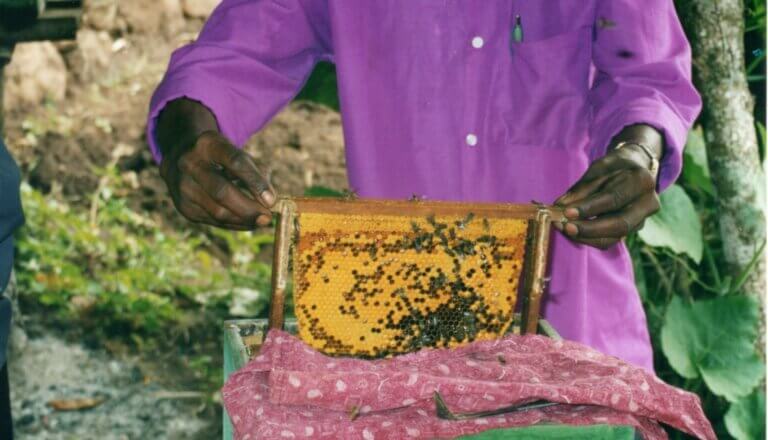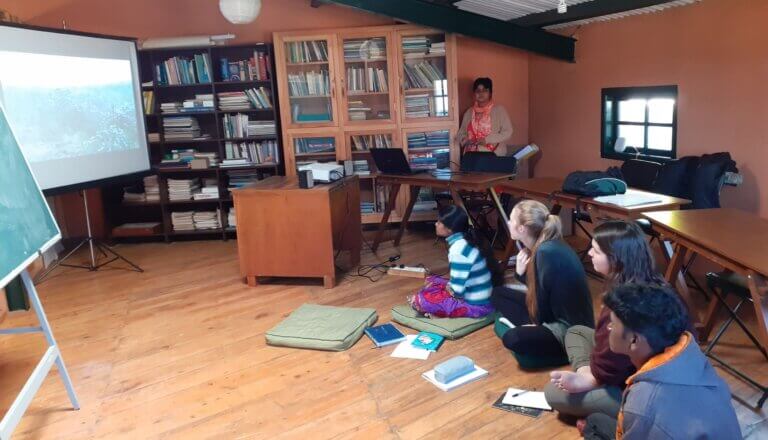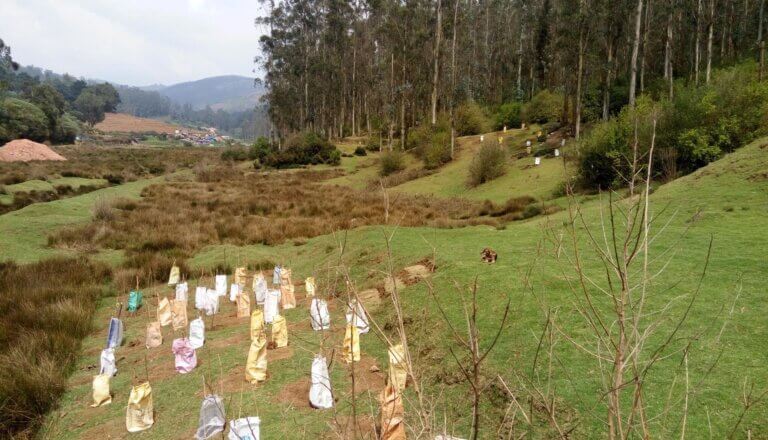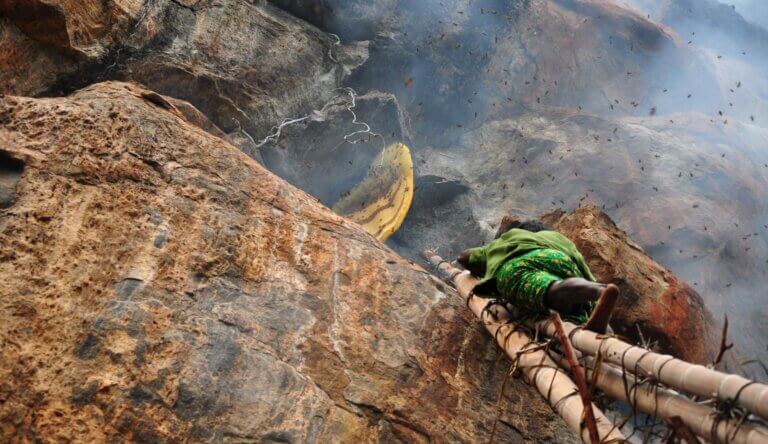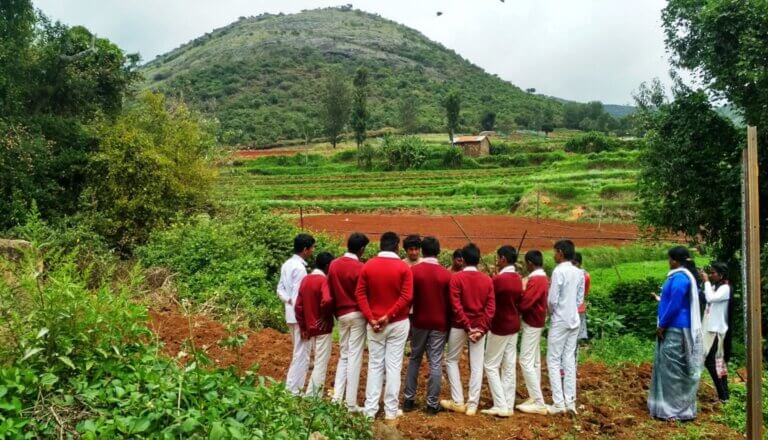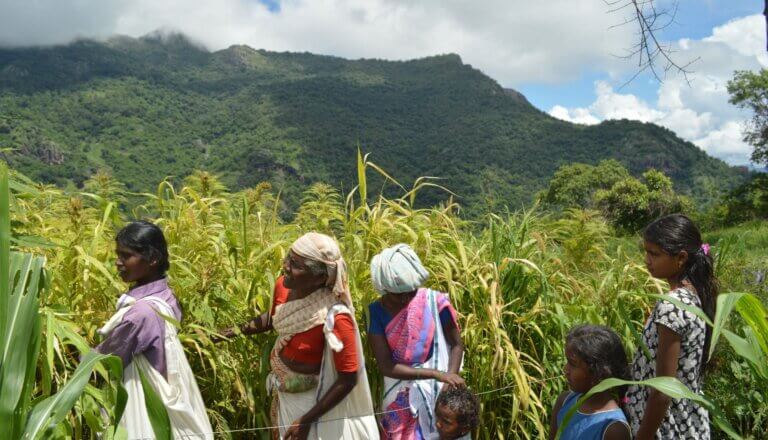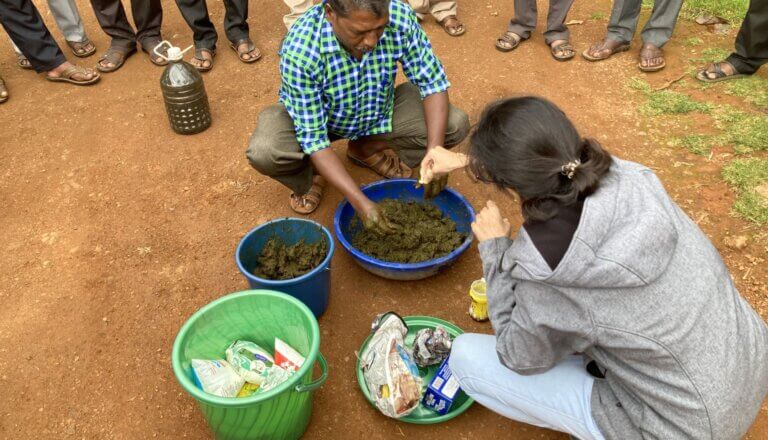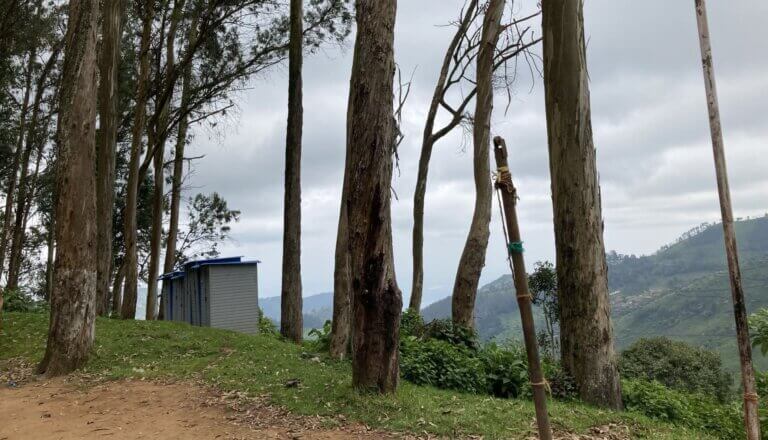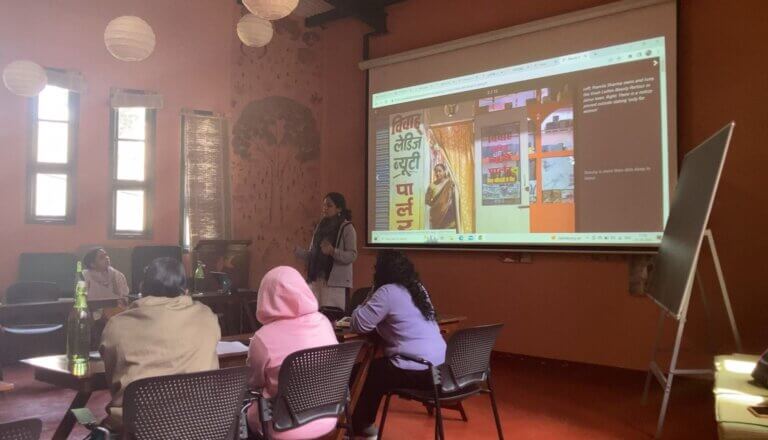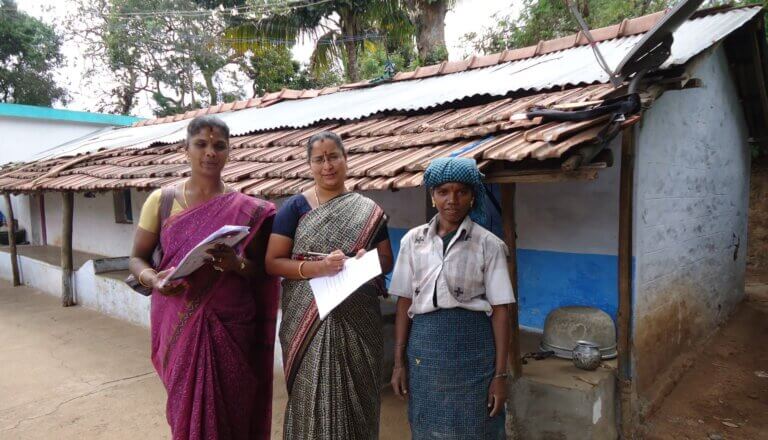


Keystone’s initial base and now headquarters was established in Kotagiri in 1993, when our preliminary surveys began with traditional honey-hunters and beekeepers situated here. Our study at the time was the very first of its kind in this part of the Western Ghats, culminating in decades of collaboration between researchers, ecologists, historians, documentarians and social enterprise leaders to this date.



The Nilgiris, or the Blue Mountains, holds within its folds India’s first Biosphere Reserve recognised by the UN in 1986 for its unique biocultural diversity. Its tops are occupied largely by Badaga, Toda, Kota, Irula, Kurumba and Paniya tribal communities that have protected and known the Shola forests and grasslands for thousands of years. Kotagiri was chosen as Keystone’s first base for its high population of tribal communities working with bees.
Honey-hunting atop precarious cliffs, traditional methods of beekeeping, collecting medicinal plants and a host of wild, uncultivated foods, harvesting indigenous millets and vegetables, are some of the ancient ways of gently interacting with the land and its diversity while uplifting the local economy and creating a vast inventory of traditional ecological knowledge… all of which have been fast declining since violent land use during the colonial era, and more recently, with the rise of urbanisation. As our growing team studied and documented information on livelihoods, tribal histories, culture, foods and human rights issues over the decades, six thematic areas of eco-development work emerged (see Impact). Nearly all areas find significant overlap, creating a rich space for meaningful collaboration, knowledge exchange and cross-sectoral work.
In the early 2000s, with a strong base established in Kotagiri, Keystone began looking to promote beekeeping and other indigenous livelihoods across the Nilgiris, with field centres slowly, steadily emerging in Pillur, Sigur, Wayanad, Sathyamangalam and Nilambur. We soon began looking to reach indigenous and local communities beyond the Nilgiris. Our interest in working with vulnerable communities in Central and Eastern India has resulted in the establishment of our most recent field centre in Potka, Jharkhand in 2022.
Today, what began as a fascination for wild pollinators and our interactions with them in the Western Ghats has resulted in a wide scope of work that seeks to improve life across rural India. Keystone works with historians, researchers, social workers, food ecologists, wildlife ecologists, health workers, filmmakers and journalists to make the impact we do. The organisation also welcomes students from across the world to contribute to our work.
